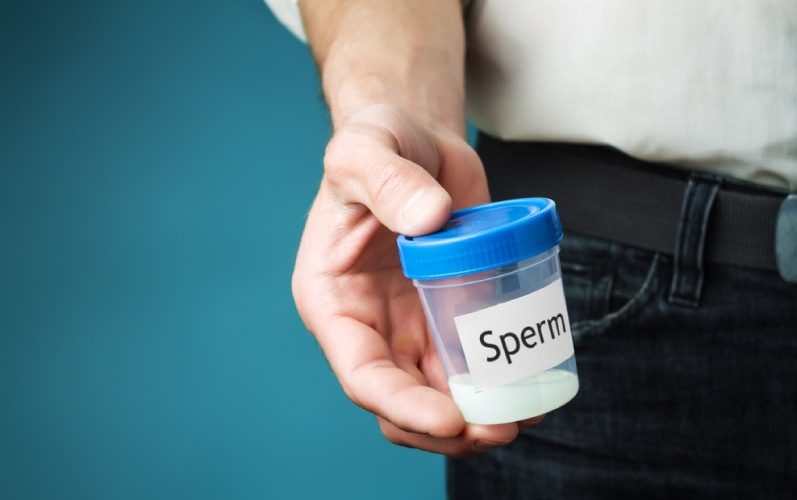Ethiopia Proposes New Law to Allow Sperm Donation and Assisted Reproductive Services
Ethiopia has introduced a groundbreaking law to address the needs of individuals who are unable to conceive naturally.
A new bill titled the “Healthcare Administration and Control Bill” has been submitted to the House of Representatives, marking a significant development in the country’s healthcare system.
The proposed bill, which consists of twelve parts, covers a wide range of topics related to healthcare services.
It addresses general health services, health service delivery, specialized health services, and human resource development and management within the health sector.
The bill contains 60 articles that cover health-related institutions, the regulation of healthcare professionals, and the supervision of medical services.
One of the key aspects of the bill is its focus on technology-assisted reproductive medicine services, included under the fourth section that deals with special healthcare services.
This provision allows licensed health facilities to offer reproductive medical services that use advanced technology, such as in vitro fertilization (IVF) and sperm donation.
The bill legally recognizes and permits these services, which were previously not fully addressed by Ethiopian law.
An important element of the draft legislation is the recognition of sperm donation. The explanatory note accompanying the draft highlights that “donation of sperm was not previously permitted by law.”
However, the new bill includes detailed provisions stipulating the legal framework under which sperm donation can be carried out. This is seen as a significant step forward in providing reproductive options for couples facing fertility issues.
The previous regulatory framework, governed by the “Food, Drug, and Healthcare Administration and Control Regulation” issued by the Council of Ministers 11 years ago, allowed licensed institutions to provide assisted reproductive treatments, including artificial insemination.
However, the earlier regulation did not explicitly address sperm donation. While it did not impose restrictions on the practice, it also did not provide clear legal guidance.
The new bill rectifies this gap by clearly stating that sperm donation is legally allowed and outlining the procedures to be followed.
According to the draft, sperm collection can only take place at specialized institutions authorized by the Ministry of Health.
These facilities will serve as the official centers for sperm donation, and any individual can donate sperm to these designated institutions, provided they meet certain health and safety standards.
The draft further stipulates that sperm donation can only occur after it is medically proven that the procedure will not cause serious harm to the donor.
It also prohibits the sale, donation, or collection of sperm outside of the authorized framework, ensuring strict adherence to ethical guidelines.
Once sperm is collected from licensed facilities, it can be used to assist individuals or couples in need of assisted reproductive technology services.
The draft bill ensures that children born through these services are legally recognized as the offspring of the married couple receiving the treatment, solidifying their parental rights.
The bill outlines four specific conditions under which assisted reproductive technology services can be provided:
- Legal Marriage: The couple seeking the service must be legally married and provide proof of their marital status from the relevant authority.
- Inability to Conceive Naturally: It must be confirmed by a qualified expert that the couple is unable to conceive naturally.
- Health and Safety: A medical professional must confirm that the treatment will have a positive effect and will not harm the health of the client.
- Informed Consent: Both spouses must provide informed written consent before accessing the service.
In addition to these conditions, the bill includes provisions for cases where couples may be able to conceive naturally but face significant health risks.
In such cases, if a medical professional determines that natural childbirth could cause serious harm to the mother, the couple can still access assisted reproductive treatments.
The bill also allows for the removal of sperm or prepared embryos before implantation into the woman’s uterus at the discretion of medical professionals or the couple.
If the sperm or embryos are not used for treatment, the draft provides for their potential use in research, but only with the informed consent of the donors.
A notable aspect of the draft is the clarification it provides in relation to the Federal Family Law. Since the bill introduces new legal concepts around children born through sperm donation, it makes clear that the Family Law provisions concerning paternity and motherhood will not apply to these cases.
Specifically, the provisions related to recognition of paternity, acknowledgment of parenthood, and proof of parentage will not apply to children born via sperm donation.
This proposed legislation marks a significant shift in Ethiopia’s approach to reproductive healthcare, providing more options for couples who face fertility challenges while ensuring that these services are regulated in a way that protects the rights and well-being of all parties involved.
